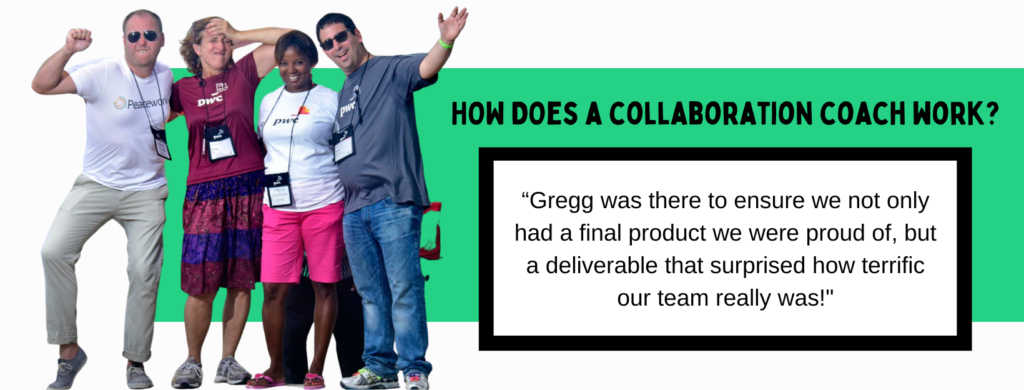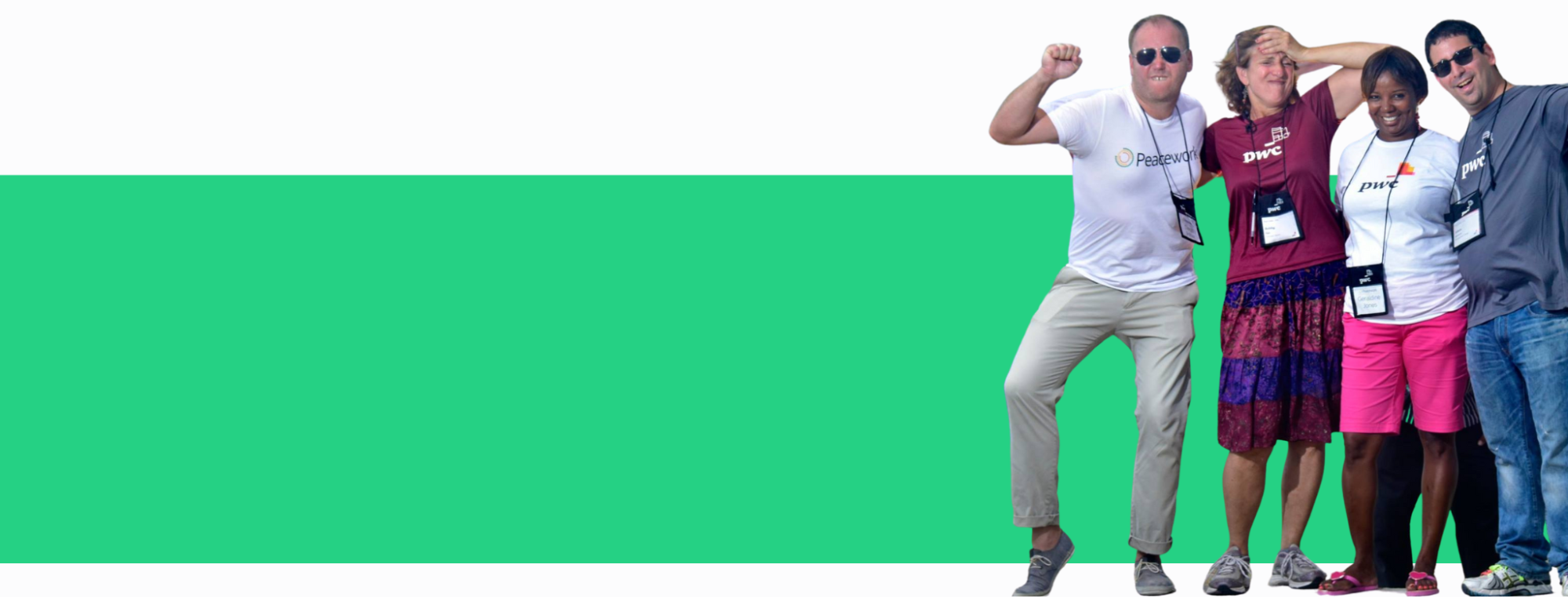
A Collaboration Coach first learns about what the collaboration is and what the intended goals are of that work. Next, they assess how the collaboration is being operated and who are the actors both directly and indirectly involved. Through conversations, the Collaboration Coach will offer different ways to increase impact of the work while ensuring it is most effective.
Gregg Potter does creates this impact by slowing down the work and creating space to highlight opportunities for growth and change. By applying his collaborative framework, The Life Cycle of Collaboration, and coaching with the emphasis on transformational leadership, facilitation, and conflict resolution, team dynamics change and the work evolves into an even more exciting experience.
Throughout the process, Gregg checks in with all of the participants in the work until either the work is finished or the team feels that they are secure in the process that everyone has been involved in creating.
**The exit strategy of the Collaboration Coach is decided in the scope of work.

TYPES OF COACHING…
One-on-one coaching with Gregg Potter. This work is done with those leaders managing large collaborations. Gregg is available for weekly meetings and to sit in as another set of ears on important meetings. Gregg and his clients work through the best ways to slow down the process, maximize impact, become more effective while developing that leader’s transformational leadership, facilitation, and conflict resolution skills.
Team coaching with Gregg Potter. Team coaching is much more hands on. Gregg is brought into the team and works with everyone through the process of the project(s). He will have coaching conversations with everyone from executives to indirect actors only completing small tasks if necessary. Gregg will facilitate meetings when called for and mediate conversations when collaborative partners are finding their way in difficult conversations. The end product is that a team is stronger for having the coach work so directly with them. The impact of the work is greater and the team will be better off when the next collaboration begins.

Communication breakdowns: Effective collaboration helps to improve communication and reduce misunderstandings between team members, leading to clearer and more efficient communication
Decreased productivity: When teams are unable to work together effectively, it can lead to decreased productivity, missed deadlines, and ineffective decision-making. Improved collaboration skills can help to prevent these issues.
Conflicts and disputes: Collaboration can help to resolve conflicts and disputes between team members by promoting open communication and creating a more inclusive work environment.
Risk management: Effective collaboration can help to identify and manage risks more effectively by bringing different perspectives and expertise to the table.

